Filter by
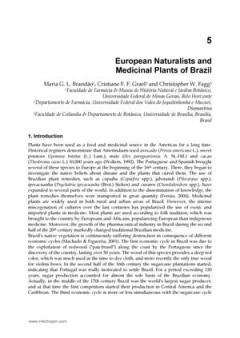
European Naturalists and Medicinal Plants of Brazil
European Naturalists and Medicinal Plants of Brazil
- Edition
- -
- ISBN/ISSN
- 9789533077062
- Collation
- -
- Series Title
- -
- Call Number
- -
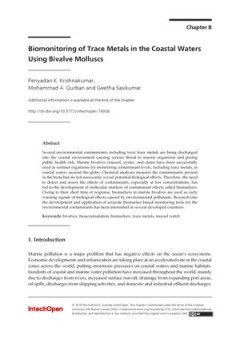
Biomonitoring of Trace Metals in the Coastal Waters Using Bivalve Molluscs
Several environmental contaminants including toxic trace metals are being discharged into the coastal environment causing serious threat to marine organisms and posing public health risk. Marine bivalves (mussel, oyster, and clam) have been successfully used as sentinel organisms for monitoring contaminant levels, including trace metals, in coastal waters around the globe. Chemical analyses mea…
- Edition
- -
- ISBN/ISSN
- 9781789236705
- Collation
- -
- Series Title
- -
- Call Number
- -
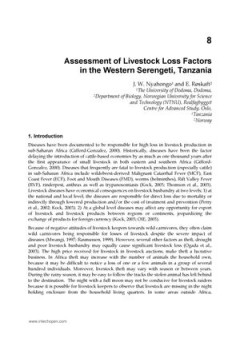
Assessment of Livestock Loss Factors in the Western Serengeti, Tanzania
Assessment of Livestock Loss Factors in the Western Serengeti, Tanzania
- Edition
- -
- ISBN/ISSN
- 9789533076706
- Collation
- -
- Series Title
- -
- Call Number
- -
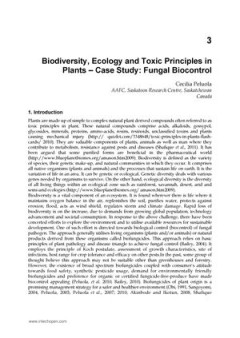
Biodiversity, Ecology and Toxic Principles in Plants – Case Study
Biodiversity, Ecology and Toxic Principles in Plants – Case Study: Fungal Biocontrol
- Edition
- -
- ISBN/ISSN
- 9789533077062
- Collation
- -
- Series Title
- -
- Call Number
- -
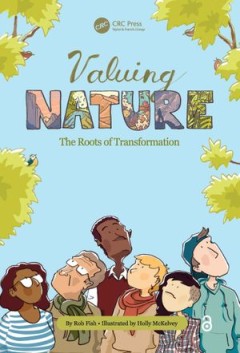
Valuing Nature The Roots of Transformation
When a group of liberal arts students embark on a university assignment about the natural environment, no one could have quite prepared them for the bewildering array of questions and provocations to confront them in their task. What starts out as an earnest attempt to understand nature in the modern world, turns into a philosophical and practical tangle that only a good transdisciplinary educa…
- Edition
- -
- ISBN/ISSN
- 1000428567, 9781000428568
- Collation
- -
- Series Title
- -
- Call Number
- -
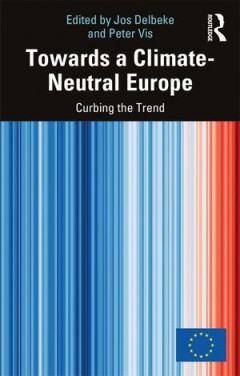
Towards a Climate-Neutral Europe Curbing the Trend
This book explains the EU’s climate policies in an accessible way, to demonstrate the step-by-step approach that has been used to develop these policies, and the ways in which they have been tested and further improved in the light of experience. The latest changes to the legislation are fully explained throughout. The chapters throughout this volume show that no single policy instrument can …
- Edition
- -
- ISBN/ISSN
- 9781000750713, 100075071X
- Collation
- -
- Series Title
- -
- Call Number
- -
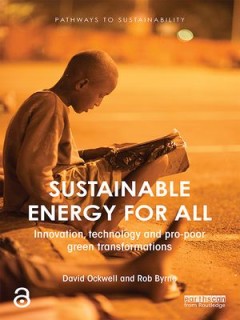
Sustainable Energy for All Innovation, technology and pro-poor green transfo…
Despite decades of effort and billions of dollars spent, two thirds of people in sub-Saharan Africa still lack access to electricity, a vital pre-cursor to economic development and poverty reduction. Ambitious international policy commitments seek to address this, but scholarship has failed to keep pace with policy ambitions, lacking both the empirical basis and the theoretical perspective to i…
- Edition
- -
- ISBN/ISSN
- 9781317220510, 131722051X
- Collation
- -
- Series Title
- -
- Call Number
- -
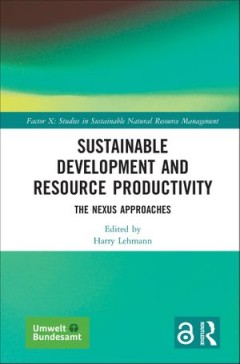
Sustainable Development and Resource Productivity The Nexus Approaches
The fourth Factor X publication from the German Environment Agency (Umweltbundesamt, UBA), Sustainable Development and Resource Productivity: The Nexus Approaches explores the interdependencies of sustainable development paths and associated resource requirements, describing and analysing the necessities for a more resource efficient world.The use of and competition for increasingly scarce reso…
- Edition
- -
- ISBN/ISSN
- 1000213749, 9781000213744
- Collation
- -
- Series Title
- -
- Call Number
- -
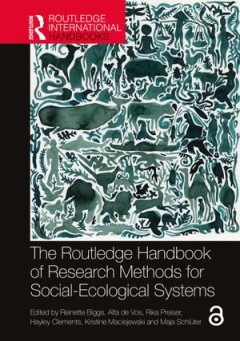
The Routledge Handbook of Research Methods for Social-Ecological Systems
he Routledge Handbook of Research Methods for Social-Ecological Systems provides a synthetic guide to the range of methods that can be employed in social-ecological systems (SES) research. The book is primarily targeted at graduate students, lecturers and researchers working on SES, and has been written in a style that is accessible to readers entering the field from a variety of different d…
- Edition
- -
- ISBN/ISSN
- 1000401510, 9781000401516
- Collation
- -
- Series Title
- -
- Call Number
- -
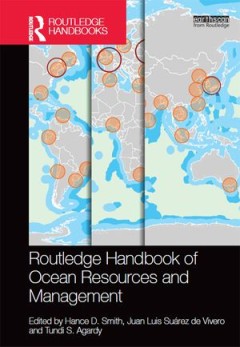
Routledge Handbook of Ocean Resources and Management
This comprehensive handbook provides a global overview of ocean resources and management by focusing on critical issues relating to human development and the marine environment, their interrelationships as expressed through the uses of the sea as a resource, and the regional expression of these themes. The underlying approach is geographical, with prominence given to the biosphere, political ar…
- Edition
- -
- ISBN/ISSN
- 1136294821, 9781136294822
- Collation
- -
- Series Title
- -
- Call Number
- -
 Computer Science, Information & General Works
Computer Science, Information & General Works  Philosophy & Psychology
Philosophy & Psychology  Religion
Religion  Social Sciences
Social Sciences  Language
Language  Pure Science
Pure Science  Applied Sciences
Applied Sciences  Art & Recreation
Art & Recreation  Literature
Literature  History & Geography
History & Geography